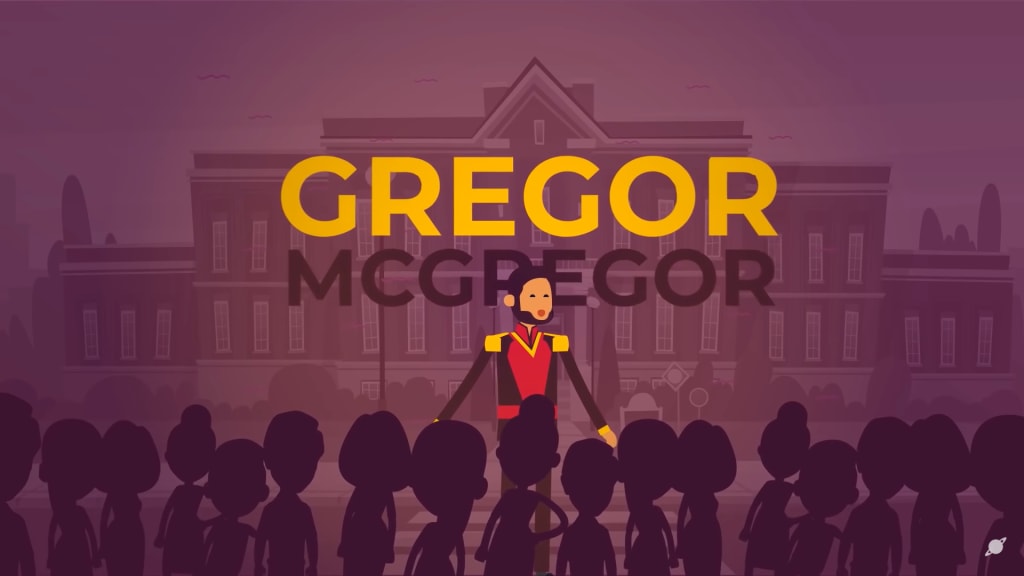History's Greatest Common Man Who Sold A Fake Country
"Gregor McGregor: The Master of Deception and the Fake Country of Poyais"

When we think of cunning individuals who have devised pyramid schemes, names like Charles Ponzi or Bernie Madoff often come to mind. But what if I told you that these swindlers would pale in comparison to a man named Gregor McGregor, who was the Jedi Master of deceit back in the early 1800s? He managed to convince the people of England and Scotland that he was the Prince of a fictitious land called Poyais. This astonishing tale of deception began in 1811 when McGregor embarked on a journey to South America to partake in the Venezuelan War of Independence. Throughout his tumultuous decade of involvement in the war, McGregor switched allegiances, sometimes fighting for, and other times against, Spain and Portugal. Despite the chaos, he displayed exceptional military prowess and swiftly climbed the ranks.
After years of armed conflict, McGregor landed on the mosquito-infested shores of the east coast of Honduras, fittingly named Mosquito Coast after the indigenous Mosquito Indians. At that time, it might as well have been named after those tiny, blood-sucking pests, given its inhospitable nature.
Through a combination of persuasion and alcohol, McGregor managed to persuade the local King, Frederick Augustus, to grant him a staggering 12,500 square miles of land. With this deed in hand, McGregor set sail for England, where people were still grappling with the devastating aftermath of the Napoleonic Wars.
In England, McGregor wove a captivating tale. He claimed that he had been anointed as the Prince of Poyais by King Augustus, and he insisted that the swampy land he owned was a paradise where crops could be harvested year-round, fruit-laden trees stretched to the horizon, riverbanks glistened with gold, and perhaps even unicorns graced the land (though he didn't make that exact claim). In essence, McGregor was selling a dream, and it was a dream that many in England and Scotland desperately yearned for during such challenging times.
To add weight to his fantastical narrative, McGregor displayed a handbook and guidebook to Poyais, written by a certain Captain Thomas Strangeways, who praised the land's beauty and potential. What people didn't realize was that Captain Thomas Strangeways was none other than McGregor himself. This was one of the earliest examples of fake news, and it worked wonders.
Hundreds of people eagerly invested in the promise of a better life in Poyais. McGregor became a multi-millionaire by today's standards. He issued bonds, exchanged real money for his fictitious Poyais currency, and chartered ships to transport hopeful settlers to his imagined utopia.
In September 1822, the first of two ships departed for Poyais, carrying around 250 passengers. However, when they arrived two months later, they were met with a cruel reality. Instead of the bustling town with fertile lands and prosperity McGregor had described, they found only a few dilapidated huts.
With limited resources and soil that could barely support life, the settlers struggled to survive. Over the following years, most of the residents succumbed to malaria or yellow fever. Only about 50 people remained, and they, too, eventually gave up and returned to Europe. McGregor's grand deception had taken everything from these unfortunate settlers.
Yet, McGregor faced minimal repercussions for his audacious scheme. He left England for France, where he began a new scam. While the French were equally gullible, the government grew suspicious as they noticed their citizens preparing to travel to a country that did not exist. McGregor's scheme unraveled when he was arrested in France, and he was subsequently imprisoned in England.
Although he lost his ill-gotten wealth, McGregor managed to escape further punishment. He later returned to Venezuela and astoundingly convinced the authorities there to grant him a commission for his wartime efforts.
In 1845, Gregor McGregor passed away at the age of 59. Today, Poyais remains a desolate, undeveloped land. It never became the haven of prosperity and unicorns that McGregor had promised.
Gregor McGregor's audacious deception serves as a reminder of the power of persuasive storytelling and the depths of human gullibility. His legacy endures as one of history's most accomplished con artists, and Poyais remains a testament to the incredible, and often tragic, consequences of believing in a dream too good to be true.
About the Creator
Kamran Malik
Interesting Articles and Entertainment for You..






Comments
There are no comments for this story
Be the first to respond and start the conversation.